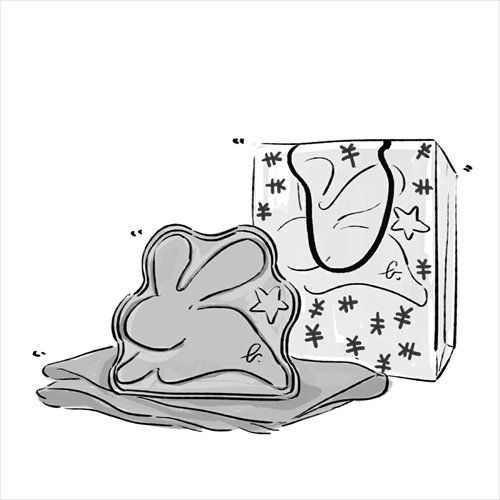
Illustrations: Chen Xia/GT
While Judy the bunny in Disney's latest film Zootopia is winning applause from Chinese audiences for her courage, bravery and wisdom, Shanghai's White Rabbit has fallen under the Chinese public's ire for attempting to make a similar daring leap.
Shanghai Guan Sheng Yuan, the company that owns White Rabbit, recently announced a collaboration with French design company Agnès B., who has repackaged the previously plain wrappers of Shanghai's oldest and most beloved candy. The new version, however, is selling for a much higher price.
Based on White Rabbit's present shelf price, irate netizens did the math and found that the same 454-gram bags of candy, which previously retailed for just 20 yuan ($3.07), will become 10 times more expensive after Agnès B. gets her French-manicured hands on it.
In response to the online backlash, local media conducted a survey asking the public about the price increase of the creamy iconic candy, which were first produced in Shanghai in 1943 and remain virtually unchanged, including the wrapper, until now.
More than 55 percent of respondents said "it is unacceptable for such a price hike," while only 4 percent said they will pay the new price.
With its decades-old slogan of "Six White Rabbit candies equal a glass of milk," local children literally grew up eating the candies as dairy substitutes. Residents often brought bags of White Rabbit when visiting relatives or friends in other provinces who didn't have access to the famous brand. For me personally, over the past 20 years I have taken the candy back to my hometown in Zhejiang Province every single Spring Festival, where it is quickly consumed.
During his historic visit to China in 1972, US president Richard Nixon was presented with a bag of White Rabbit by former premier Zhou Enlai, and we can assume that subsequent generations of our nation's leaders have also offered the candy at diplomatic visits, along with tea from Fujian, silk from Jiangsu and Moutai liquor from Guizhou - which together make up the four most famous gifts of China.
Which leaves me wondering if White Rabbit will still be considered a unique Chinese national product in its new French designer clothes? In this era of globalization, multiculturalism is unavoidable, but certain time-honored brands - especially in a city with so few - should be left untouched.
It is admittedly ironic that even after 700 years of history, we can count on one hand how many unique brands Shanghai can call its own. Forever Bicycle, created in 1940, is still seen on the streets, and the Seagull Camera, which dates back to the '50s, remains popular with photography traditionalists. And of course Feiyue Sneakers, which have been around since 1959 and worn by billions of students over the generations. Really, including White Rabbit, that's about it.
In the case of Feiyue Sneakers, the company was actually bought out by the French in 2005 and given a brand "reboot" the following year after collaborating with Agnès B. on a new design, which led to them selling millions of pairs to hipsters around the world.
There's no question that the success of the new Feiyue Sneakers is what lead Agnès B. to cooperate with White Rabbit on a similar change. And given White Rabbit's 2009 name change to Golden Rabbit Creamy Candy for its 40-country exports, along with the conversion to New Zealand milk following the melamine contamination scandal, it's understandable that the company is attempting a "white wash."
But rather than paying a French designer to make its packaging more appealing to brand-obsessed consumers, wouldn't it be more logical to start producing different "Chinesey" flavors that could increase international market share? Durian or green tea or lychee, for instance, would probably win the taste buds of local and foreign sweets lovers.
According to a recent Global Times survey, expats in China said they prefer Huawei mobile phones, Tsingtao beer, Zhenjiang vinegar and Tencent's WeChat over their Western competitors. Our packaging may not always be cool, but many Chinese products, especially food, remain preferred by foreigners simply for their flavor and affordability. White Rabbit should keep this in mind before going through with its French makeover.
The opinions expressed in this article are the author's own and do not necessarily reflect the views of the Global Times.

